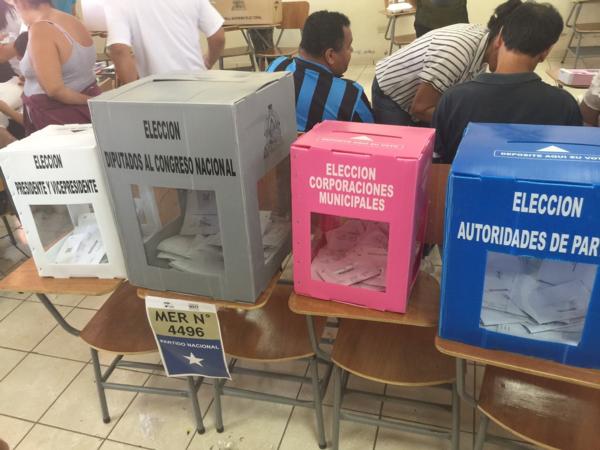
Ron Nehring, Director of International Programs
March 14, 2017
LI faculty members join international election observation mission in Honduras
TEGUCIGALPA – Honduras is one of the few countries in Latin America with a center-right government. This week, four Leadership Institute staff and faculty members participated in an international mission observing the country's national primary elections. The Leadership Institute's International Department has a robust ongoing training program in Honduras. The center-right National Party is under pressure from two leftist parties, the more extreme of which, Libre, receives active support from radical left-wing regimes in the region including Venezuela, Cuba, and Nicaragua. International observation missions are an important means of ensuring transparency and accountability in internal party democracy. LI's Director of International Programs Ron Nehring, former Ohio GOP Chairman Kevin DeWine, and former party chairs Nyna Armstrong and Thaddeus Taylor, who made up the LI team, were joined by 17 observers selected from conservative parties of other Latin American countries by Germany's Konrad Adenauer Stiftung (Foundation), which sponsored the program. The observation team visited 4 polling places in the region of Honduras' capital of Tegucigalpa, watching and reporting on how voters received and cast their ballots in each party's primary election. The team reported the election was well organized and experienced only minor complications, such as the late arrival of observers from various party factions at some polling places. “While countries like Venezuela and Cuba rest political liberties, Honduras demonstrates a strong national commitment to allowing every citizens' voice to be heard,” said Nehring. In 2016, the Leadership Institute trained 1,058 conservative candidates, potential candidates, leaders, and activists from throughout Honduras. Click here to learn more about how you can bring an LI training to your country.
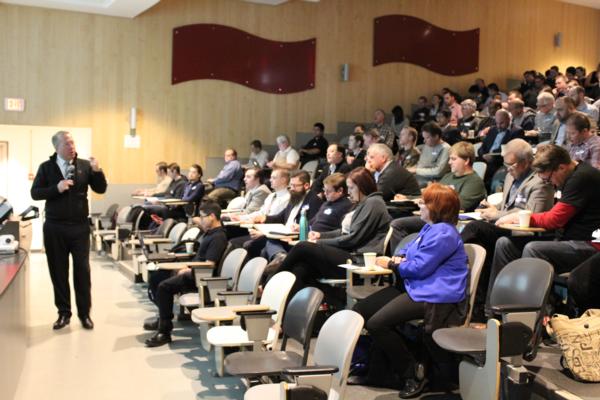
Ron Nehring, Director of International Programs
February 6, 2017
Leadership Institute trains Canadian Conservatives poised to take back Alberta
With the left in control in “the Texas of Canada,” conservatives in Alberta are gearing up for a comeback. On Saturday, January 21 the Leadership Institute trained 223 activists, elected officials and future candidates with an intensive program that brought participants from throughout Alberta and as far away as Edmonton. Leadership Institute Director of International Programs Ron Nehring and expert faculty member Bill Faulk of New York led the program. They were accompanied by William McBeath of the Manning Centre. The overwhelming attendance shows a “pent-up demand for this kind of training” according to one Conservative Party leader. Participants received training in subjects including the real nature of politics and elections, campaign strategy, crisis communications, digital activism, campaign messaging, and more. The Calgary program was the second in a series of six programs the Leadership Institute is holding throughout Canada in 2016 and 2017. Future programs are already on the books for Halifax, Toronto, and Ottawa. Click here to learn more about how you can bring an LI training to your country.

Karla Bruno
November 23, 2016
Thanksgiving is a Day to Celebrate, and be Thankful for, our Religious Freedom
The myth of the First Thanksgiving is held dear by most Americans: Pilgrims, having reaped a glorious harvest of squash and other vegetables, shared a feast with Indian friends in 1621.The reality, alas, is a bit different.The Pilgrims of Plymouth landed in the New World in December 1620, and the following spring celebrated a day of Thanksgiving for having survived the cold Massachusetts winter. There was no harvest feast because the crops hadn't been planted yet. Only half of the original 102 settlers survived that first winter.Meanwhile, back in Virginia, earlier English settlers had already celebrated two official annual days of Thanksgiving each December at Berkeley's Hundred on the James River (now known as Berkeley Plantation).The friendly First Thanksgiving rivalry between Virginia and Massachusetts dates to the 1930s and continues today. In truth, no one knows when the First Thanksgiving took place because it was a normal part of everyday life for Virginia Indians as well as Spanish and French Catholics in Florida.The consistent factor in all Thanksgivings—regardless of year, population, or location—has been the religious nature of the day, with the full support and encouragement of elected officials from the town mayor to the U.S. President.America is blessed with freedom of religion, not from religion, thanks to the First Amendment, and we continue to embrace the Judeo-Christian principles that helped shape our great nation politically and sociologically. “Congress shall make no law respecting an establishment of religion or prohibiting the free exercise thereof.”As Ronald Reagan said:“Freedom is never more than one generation away from extinction. We didn't pass it to our children in the bloodstream. It must be fought for, protected, and handed on for them to do the same, or one day we will spend our sunset years telling our children and our children's children what it was once like in the United States where men were free.”You and I must continue to fight for religious freedom. Never rest; the opposition never does.One way to fight that fight is to practice the religion of your choice in a public way. Let us all enjoy our families, big meals, football, and parades on Thanksgiving, and maybe take time to attend a religious Thanksgiving service at a place of worship near you, recalling that we are endowed by our Creator with the right to the free exercise of religion and that all Thanksgivings in America, past and present, are centered on gratitude to God for His blessings. >
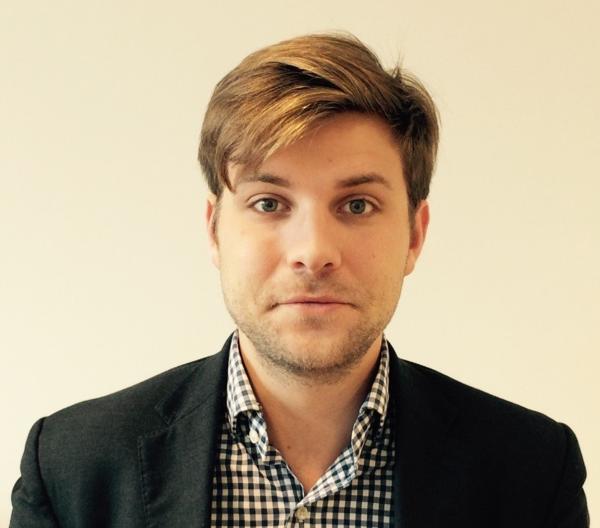
Mari Vogel
August 5, 2016
Former intern promotes conservative values in his home country of Denmark
Former Leadership Institute intern Ulrik Boesen is working to promote conservative values in his home country of Denmark. Ulrik, 26, has been involved in politics for more than ten years. As a teenager in Denmark, he got involved with the Danish Liberal Youth, doing grassroots campaigning and educating other party members on conservative philosophy. In 2012, he took an interest in the United States presidential election and worked with the Danish Liberal Youth (DLY) to volunteer for Mitt Romney's 2012 presidential campaign. “The passion and values of the people I met back then made me believe in the movement," he said. In the spring of 2013, Ulrik interned at the Leadership Institute, an opportunity which he credits with teaching him the dedication, execution, and public relations skills which he uses in the workplace today. “I must say that my time at LI was one of the best of my life, and not only because I met the love of my life." (Boesen met his long-term girlfriend during his time in the Washington, D.C. area.) Since returning to Denmark, Ulrik has worked at Japan Tobacco International, one of the world's largest tobacco companies, as the Corporate Affairs and Communications Manager. He enjoys the challenge of working in public relations and government with a product that is highly regulated. Ulrik hopes to continue supporting the international movement for personal freedoms and property rights, particularly in Denmark. He has been a member of the Danish political party, Venstre, for the last decade and has supported candidates in policy, development, and communications.As for advice he would give to other conservatives, he says, “I believe in the conservative values and the security you get from living by them." He also recommends getting involved in youth politics and campaigns at the earliest opportunity. “You must be willing to put yourself on the line. If you are willing to put your time and passion towards something, you will see great results."Learn more about LI's International Training. Learn more about the Institute's internship program and apply here. Mari Vogel is a summer intern in the Grassroots Department for the Leadership Institute. For more information, please visit www.LeadershipInstitute.org.>

Jami Averwater
July 19, 2016
Leadership Institute graduate uses training to play active role in the Republican National Convention
Joy Lee is a graduate of the Leadership Institute. She served as an attorney at the Committee on Arrangements for the 2016 Republican National Convention. Joy was born in Seoul, South Korea, and raised in Los Angeles, CA and Baltimore County, MD. Joy is a proud graduate of University of Maryland and Washington and Lee University School of Law.Read her interview about her experiences at the Leadership Institute and the Republican National Convention. 1. How did being a Leadership Institute (LI) graduate prepare you to work for the Legal Division at the Committee on Arrangements for the 2016 Republican National Convention (“COA”)? I attended the Leadership Institute's Women's Leadership Training in March 2014 in Arlington, Virginia with dozens of other women from around the country. Though this training did not prepare me for the legal and substantive parts of my role today, it provided me with a general framework as I started my career. Politics and the field of law are often considered to be male-dominated fields, so it's especially important for young women to learn how to present themselves as leaders wherever their careers take them.I was fortunate to be surrounded by and learn from some of the best legal, political, and logistics operatives in our party—many of whom are women. 2. How many months in advance does the COA begin to plan the Convention? I moved to Cleveland from Washington, DC for this position in late February/early March 2016, just under five months before the start of the Convention. At that point, the COA was already staffed to approximately fifty people, most of whom moved to Cleveland from various parts of the country.The first staff member of the COA was hired more than a year in advance of the Convention. At its peak, the COA had approximately 120 staffers, dozens of independent contractors and interns, and hundreds of volunteers. 3. Why was Cleveland chosen as the location for the 2016 Republican National Convention for the third time in history? The last time the Republican National Convention came to Cleveland was June 1936. Since then, the city of Cleveland has had its share of losses—economical and sports-related—but in recent years, Cleveland has experienced a resurgence. To showcase that on a national and even international level, the city of Cleveland submitted a bid to host not only the Republican National Convention but also the Democratic National Convention for three cycles in a row. When I asked a member of the Site Selection Committee why they chose Cleveland, he answered, “We felt special there.” Now that I've been in Cleveland for a few months, I can relate to that sentiment. The city of Cleveland has welcomed us with open arms, and it's evident how much this Convention means to the people of Cleveland. Especially in light of its recent NBA Championship—its first sports championship since 1964 and effectively earning its reputation as being a cursed sports city until now—there is a distinct buzz around town. It's exciting to be a part of history, not just for the party, but also for the city of Cleveland. >
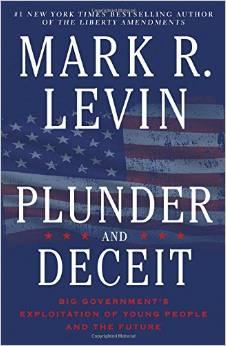
Morton Blackwell
July 31, 2015
A Must Read: Mark Levin’s New Book Plunder and Deceit
In politics, it is not enough to know what's right. To succeed, your command of a subject must be so secure that you can persuade people you are right. And then you must activate them. Plunder and Deceit by Mark Levin is a necessary read for anyone who fights against statist power grabs. This new book sets the stage for the 2016 election and beyond. Levin's new book is a wake-up call, especially for young people. He explains the dangers of government and the coming crisis our country faces -- the loss of the greatest republic known to history. Before the 2016 election, educate your friends and family with this book about the growing dangers of big government. Young people must find the personal strength and will to break through the cycle of manipulation, unrelenting emotional overtures, and pressures of groupthink. Parents too often ignore the threats to their children's future. Plunder and Deceit calls for a new civil rights movement to end the exploitation of our children by statist government policies. Levin challenges young people to stand in their own defense so their generation and future generations can live in freedom. Plunder and Deceit will be released on August 4. However, you can pre-order this book today. Pre-order your copy of this must read, Plunder and Deceit by Mark Levin, today. I recommend Plunder and Deceit to every conservative activist and leader. Mark Levin is a nationally syndicated talk-radio host and president of Landmark Legal Foundation. He is the author of Liberty and Tyranny, the 38-week New York Times bestseller which spent three months at #1 and sold more than one million copies. I expect Plunder and Deceit to be widely read and distributed to young conservative activists and their parents. Activism without education in conservative principles is dangerous. Order your copy of Plunder and Deceit today.
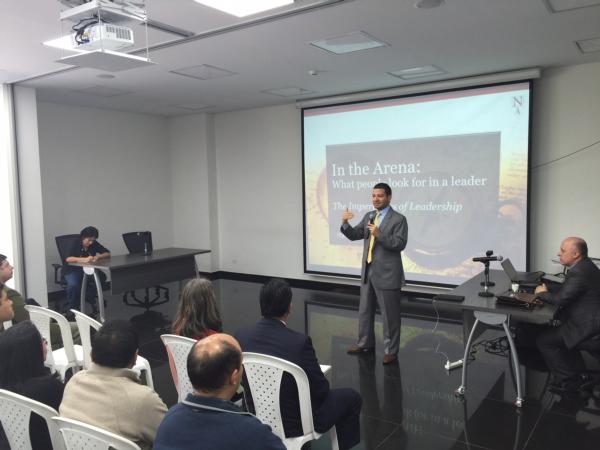
Ron Nehring, Director of International Programs
June 17, 2015
Grinding up bad laws: LI Faculty Member Italo Antoniotti fighting for free market reforms in Latin America's coffee sector
It's been said that big business loves big government, and this maxim certainly holds true in Latin America where Leadership Institute faculty member Italo Antoniotti is fighting to reform Guatemala's outdated and destructive coffee and trade laws -- helping tens of thousand of indigenous Mayans in the process. Antoniotti serves as the director of FEDECOCAGUA, the voluntary national association representing 23,000 small coffee producers in Guatemala, most of whom are native Mayans. They're going up against the country's biggest coffee producers and their government-guaranteed supermajority on the board of Guatemala's state-sanctioned coffee trade association, ANACAFE. The small producers represented by Antoniotti's group are forced to obtain export licenses from the big coffee producers that dominate ANACAFE, and pay a mandatory (and economically inefficient) 1% export tax to fund the organization. This year, FEDECOCAGUA went to court to challenge the constitutionality of the export tax and the regulatory system that requires small coffee producers to, in effect, obtain the permission of their larger competitors for the freedom to sell their goods on the world market. With a tiny domestic coffee market, producers' financial success or failure depends entirely on their freedom to export. With a 30% decline in Guatemala's coffee production during the last decade, it's economic crunch time for the country's indigenous population of coffee producers who rely on selling their product to sustain their families and communities. Antoniotti, who began serving as a Leadership Institute volunteer expert faculty member in Latin America this year, argues that the free market, and not government mandates, should prevail. Industry trade associations should be voluntary and not government-mandated, and the export tax should be abolished as economists universally recognize the inherently destructive nature of export taxes. (Article 1, Section 9 of the United States Constitution explicitly prohibits such taxes.) In many Central American countries people have been forced to choose between socialist policies on the one side, the crony capitalist policies on the other. The solution, as documented extensively by the Heritage Foundation in their Index of Economic Freedom, is to advance policies that give neither government nor government-favored businesses an unfair advantage in the marketplace. Reasonable and predictable taxes, free trade, freedom from corruption, access to a fair judicial system, a low regulatory burden and free labor markets are the keys to economic success and prosperity. If Antoniotti and his group of 23,000 independent coffee producers succeed, one Central American country will have taken a significant step in the right direction.

Morton Blackwell
April 2, 2015
Do You Want to be a National Convention Delegate?
In early 1961, I decided to try to be a Goldwater delegate to the 1964 Republican National Convention. When Barry Goldwater beat the party establishment and won the G.O.P. Presidential nomination, I was his youngest elected delegate at San Francisco's Cow Palace. And I've been deeply involved in politics ever since. In 1975, I wrote an article for the Young Americans for Freedom magazine New Guard entitled, "So You Want To Go To A Convention?" Oklahoman Steve Antosh read the article and followed my advice. The next year, at age 19, Steve was elected a Reagan delegate to the 1976 G.O.P. national convention. Four years later, in 1980, Steve was the National Director of Youth for Reagan. For you, as for Steve Antosh and for me, conservative activism could be the route to the Big Convention and, perhaps, a career in the public-policy process. Hard Work Pays Off For Conservatives If you're a liberal Democrat, and you're a black lesbian militant with a Spanish surname, the Democrats' convention rules are written with quotas for you. If you are a conservative -- Democrat or Republican -- chances are you'll have to work hard to win a seat on your state's national convention delegation. Each state has its own rules for national convention delegate selection. States may and often do change their state laws and party rules between national conventions. Under their national rules and U. S. Supreme Court decisions, state Democratic parties may adopt rules for national convention delegate selection which are inconsistent with state laws. The national Rules of the Republican Party now also provide that state Republican Party rules for national delegate selection prevail over state law on this subject. Most delegates are elected in states with primaries, but primary and convention rules vary greatly from state to state. Learning your state's applicable laws and party rules is a key, first step toward becoming a delegate. If your state is one of those which have no presidential primary, you may have to mount a major operation to attract people to a caucus or win support from local delegates to a district or state convention. If you already know how to draw a crowd, work a convention, use parliamentary procedure, form alliances, and count votes, you have a head start on the road to the Big Convention. If your state elects delegates in a presidential primary, your problems will be somewhat different. A primary can involve precinct organization, TV, radio, social media, and press advertising, a great deal of money, and many more people than a convention. But while it helps to be an expert at convention politics and primary election politics, your personal reputation and your candidate preference are likely to prove much more important. Some states have "winner take all" presidential primaries. Other states use proportional representation. Under this system, presidential candidates who get a sizable minority of the primary votes may get some of the state's delegate votes. Rules for delegate apportionment for candidates in proportional primary states vary widely. In some primary states, delegates are elected by the party separately from the presidential primary. In these states, delegates are bound by the primary to vote at the national convention for the presidential candidate who wins the state's primary, for one or more ballots or until "released" by the candidate for whom they were obliged to vote. Neither state conventions nor primaries require the delegates to vote a certain way on other issues which may come before the national convention, such as credentials contests, the party platform, or proposed changes in the party's national rules. You can see how important it is to work hard to familiarize yourself with the rules which govern the delegate selection process in your state. In every state, whether delegates are selected by primaries or by conventions, the system is wide open at the bottom. Anyone can be a member of any party and participate in its delegate-selection process. You win if you get the most people to turn out for a primary, a caucus, or a convention. Building Your Base I began in early 1961 to consider the available routes in Louisiana to become a delegate to the 1964 G.O.P. nominating convention. There seemed to be only two sorts of people elected delegates to national conventions: those who had worked long and hard for the party over many years and those who had contributed substantial sums of money to the party and its candidates. Neither avenue was open to me. I had neither the time nor the funds to qualify. To develop a third route, I settled on youth politics. I helped organize Louisiana State University's YAF chapter in 1961. In 1962, I helped organize L.S.U.'s first College Republican Club and was the first elected College Republican state chairman for Louisiana. In 1963 and early 1964, I ran the youth campaign for Charlton Lyons, the Republican candidate for governor of Louisiana. Mr. Lyons won eight smashing, upset victories in college student mock elections, which raised my credit in the party. Later in the spring of 1964, I was elected state chairman of the Young Republicans. I wore out my old Rambler organizing youth activities across the state. Having worked closely with party leaders in all eight congressional districts, I became one of the handful of Republicans known to virtually every local leader who would be at the state convention. Senior party leaders were comfortable with me. I ran for national delegate with the simple slogan: "Elect one young person." The 1964 Louisiana Republican state convention elected four at-large delegates to the 1964 G.O.P. national convention: three well-off, veteran party activists and me. The Team Of course I would never have been a delegate if my presidential candidate, Barry Goldwater, had not been popular in the state party. In 1963, I was one of the original eight members of the Steering Committee of National Youth for Goldwater. I ran openly as a Goldwater supporter. This brings me to the central fact for aspirants to delegate slots: In a national presidential nomination contest, each candidate's district and state organizations may run slates of delegate candidates. If you are not slated by a candidate's organization, you are very unlikely to be elected a national delegate at a district or state convention or in a state primary. Occasionally, particularly in a convention state, a party senior statesman can be elected as an uncommitted delegate. Newcomer mugwumps (those who sit on the fence with their mug on one side and their "wump" on the other) go nowhere. Why might a candidate's state organization want you on their team? Here are some questions your candidate's organization will consider when you ask to be slated as a delegate or alternate delegate: Are you committed to our candidate? Are your commitments ever shaken by pressure, threats or bribes? Do you have personal supporters whose help would strengthen our candidate's entire slate of delegates? Will you be a hard-working campaigner for our slate of delegates? Are you sure to attend the national convention? Could you be useful to our candidate in winning more delegates to our side at the national convention? Do you have support and contacts in our candidate's national organization? Is there any likelihood you will say or do something foolish to damage our candidate? Is there anything in your background which would embarrass our candidate? Do we like you? If you are philosophically sound, technologically proficient, and movement oriented, you should pass muster on all these questions. Being a well-known volunteer leader would increase your chances of being slated by your candidate's organization. Alternatives May Work For You You don't have to be a delegate to go to a presidential nominating convention. An alternate delegate has all the rights and privileges a delegate has except voting. An alternate delegate may have a better time, because at contested conventions delegates are encouraged not to leave the convention floor even during dull speeches. In fact, you do not have to be either a delegate or an alternate delegate to have an impact on the events at a convention. When I was a Goldwater delegate in 1964, my major accomplishment was minor at the national convention in San Francisco. As a volunteer, I stuffed campaign envelopes for other delegates in the Goldwater mailroom. In 1968, as a Reagan alternate delegate, I was able to help convince a couple of uncommitted delegates to vote for Reagan. At the 1972 G.O.P. convention, I was neither delegate nor alternate. But I worked successfully with the conservative forces fighting against a well-organized, well-funded liberal attempt to change the national party rules governing delegate allocation and bonus delegates. A plan I drafted, which came to be known as the California Compromise (or the Briar Patch Plan), was adopted by the 1972 convention after a major, nationally televised, conservative vs. liberal fight. The principal speaker for our conservative plan was California Governor Ronald Reagan. Since 1972 that delegate allocation plan has withstood liberal challenges in court and at some subsequent G.O.P. national conventions. With few changes, it still is the basis for the allocation of delegates to the national convention. Since 1964, I've participated actively in each of the GOP national conventions, almost always as a delegate or alternate delegate but also, since 1988, as a member from Virginia of my party's national committee. The circumstances back in 1972, when I was not even an alternate delegate, permitted me to have what was probably my biggest impact to date on what went on at a presidential nominating convention. So don't miss a national convention just because you can't be a delegate. Start Now In politics you can start late, but you can never start too early. Maximize your effectiveness by joining your candidate's campaign organization as soon as you can. Call your candidate's office. Sign on early as an activist. The election process puts a premium on volunteer efforts. You should be welcomed with open arms. Your work for your candidate, not whether or not you are a delegate, will determine your position in your candidate's convention organization. The Big Convention comes only once every four years. It's too good an opportunity to miss. If you are serious about becoming a delegate or alternate, you should get a copy of your state party's rules from local or state party officials, or from your candidate's state or national organization. Conservatism is now politically fashionable. But few people will beg you to assume leadership. As historian Paul Johnson wrote, leadership, in its essence, is a combination of courage and judgment. If you plan carefully, work hard, and keep alert for good breaks, you may make a difference at a national convention. And you'll learn a lot.
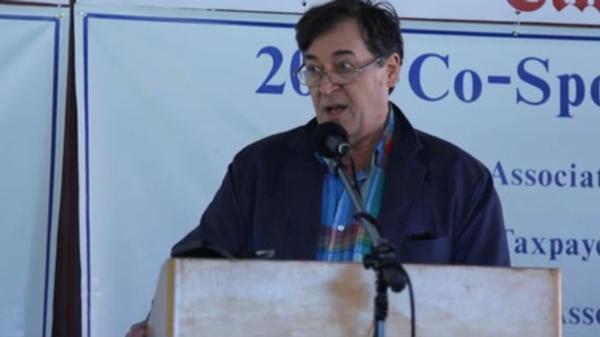
Ron Maxwell
July 9, 2014
The New Aristocracy
The following is a speech given by Ron Maxwell, independent filmmaker, at the 43 National Fourth of July Conservative Soiree: In 1776 Americans declared themselves independent of more than arbitrary rule by a distant monarch. They also severed the ties of aristocracy. This was in itself a revolutionary notion. It meant that political power, its attendant privilege and economic advantages would no longer be transferred by the blood. Earldoms, dukedoms, and kingdoms were banished from the territory and from the future of the American people. The citizen became the self-identifying unit of self-rule. The generation of English colonists who gathered together in the summer of 1776 to declare their independence from the English crown knew that they had exhausted all other remedies. They had petitioned, beseeched, and protested. Finally, they had resisted with force of arms at Lexington, Concord and Bunker Hill. Their declaration of independence was the last resort, the last redoubt, the final refuge. As we say today, they were putting it all on the line. They were breaking not just with monarchy, but with hereditary aristocracy as well. From that day forward, July 4th, 1776, the destiny of no American would be defined or limited by the circumstances of his birth. Dukes, earls, princes, knights - all were swept away. Political power would no longer be the dominion of a select few families, to be passed from one generation to the next. As with the other Founders, Adams and Jefferson shared an abhorrence for what they called the “tinsel aristocracy” of the Old World. They were glad that America had been spared the baneful influence of a corrupt, hereditary nobility. While recognizing that the abolition of the hereditary rights of primogeniture and the prohibition of titles of nobility precluded certain kinds of officially sanctioned aristocracy, Adams insisted that such measures could not in themselves preclude the re-emergence of aristocracy in some other, perhaps more insidious, form. He argued that aristocracy could renew itself as it had in the old world, by means of the accidental circumstances accruing from birth into a wealthy or renowned family. Adams wrote, “I can never too often repeat that aristocracy is the monster to be chained…Bind aristocracy then with a double cord, shut him up in a cage from which, however, he may be let out to do good but never to do mischief.” Adams insists that “every government is an aristocracy in fact” and that it is imperative to guard against the greed, ambition and tyranny of the aristocracy. He indicates the remedy: “The great secret to liberty is to limit [the aristocrats'] power and to control their passions. Rome and Britain have done it best.” In a republic an informed electorate watches over all the branches. The “balance of government,” and with it liberty, is therein preserved. Thus the separation of powers, checks and balances; clearly delineated, limited and circumscribed powers ceded to the Federal Government, regular and frequent free elections – as Adams would say, “plucks the flower of republican safety from the nettle of aristocratic danger.” Over time, indeed the passing of more than a century, the people of Britain, following their own path, without the total abolition of hereditary privilege, stripped this privilege of its political power. Today the Royal family continues to enjoy great wealth, the continued ownership of extensive property which includes palaces and estates and a certain influence rooted in tradition, but zero political power. The queen cannot start a war, raise taxes or for that matter, even take sides in a political debate. She is the living embodiment of a heritage, a national community, an emblem and a country. In recent years we in America have lived through a disturbing reversal of our concept of the citizen and our foundational rejection of the hereditary model. Despite the fact that we are more than three hundred million strong, when it comes to political power, we seem intent on reestablishing the old hereditary aristocracy rejected, dismissed and dissolved by our ancestors. Unlike the contemporary British model, with the Queen cozily ensconced in Buckingham Palace where she can do no harm, we Americans seem to be succumbing to the lure of a neo-aristocracy, one in which we endow our neo-aristocrats, our ‘royal families” with full and unfettered political power and all that that entails. When we elect a president we endow this person with immense power. For four to eight years this individual – this one solitary person - makes extensive political appointments across a wide range of powerful offices. These choices have lingering effects in the judiciary, law enforcement, national defense and in bureaucracies too numerous to list here. This constitutes a vast network of patronage, favoritism, privilege, cronyism and power. Moreover, this influence extends beyond the particular president's actual tenure in office – even beyond their lifetimes. The Founders understood that power corrupts.This thinking underlies and undergirds every decision they made in crafting the Constitution and the Bill of Rights. Humans lust for power. It's in their very nature. The Constitution checks this power, diffusing it away from individual persons and individual groups or factions. This is why it is so important to protect this document – and why it has been defended by great statesmen and heroic soldiers. The generation which fought the Revolution, who endured the freezing winter at Valley Forge, the icy waters of the Delaware, the bloody fields of Saratoga, Trenton, Monmouth and Yorktown – knew very well what they were fighting against – tyranny – and knew very well what they were fighting for – liberty. In the 1940s a later generation sought to curb what they saw as an encroaching and ominous concentration of power in one person by limiting presidents to two terms. They realized, correctly, that no person, however talented, dedicated or competent; however high-minded, inspired or well connected; however popular or even beloved –no one person should be permitted to hold such massive and pervasive power for more than a limited time. They understood, as hopefully we still understand, that we are just human beings, each and every one of us – and subject to the frailties, imperfections, excesses and errors of all humans. Though some of us may sometimes forget it - we are not gods. When the triumphant generals paraded with their legions through the streets of Rome, glorious astride their flower strewn chariots, with the noise of the adoring throngs ringing in their ears, standing right behind them was a humble servant. Amid the din of cheers and the screams of praise this servant whispered into the general's ear, over and over and over again, lest he should be tempted even for a moment to be blinded by what he was seeing or deafened by what he was hearing with his own eyes and ears. “Respice post te. Hominen te esse memento! Memento mori, memento mori.” “Look behind you. Remember that you are a mortal. Remember that you too will die. That you too will die.” I mean no disrespect to my fellow citizens who belong to the Kennedy, Bush or Clinton families. I'm of the opinion that John Kennedy, George H.W. Bush and Bill Clinton are good men who endeavored to do their best for the country. In the cases of Kennedy and Bush, they are also war heroes. They deserve our admiration and respect. My concern is not with their legacy. Historians in future generations will sort that out. My concern and my growing worry is that we are returning, by means of a meek acquiescence, to the aristocratic rule from which we liberated ourselves in 1776. Is there a single day from which we are free of pundits, consultants, editorial writers, reporters, columnists, politicians, talking heads or cable-TV hosts - the entire universe of sycophants, lackeys, hangers-on and celebrants – gushing, giggling, gawking and panting over the political prospects of a Hillary Clinton or a Jeb Bush? And oh, the gnashing of teeth and the rending of garments that went on during the few short months without a Kennedy in the halls of Congress. To this we've come. The fusion of celebrity, name ID, retail branding and politics has returned us willy-nilly to the very political prison we fought to escape in the American war of independence — entrenched, hereditary, aristocratic political power. We understand that wealth can be transferred from generation to generation. Americans by and large don't have a problem with that. There's nothing inherently wrong with leaving the fruits of your hard earned labors to your children. But political power is something else again. Political power reaches into the privacy, the daily lives, the economic well-being, the health, safety and freedom of every American. Political power is not the exclusive domain of a select few families, to be handed down from generation to generation. Political power belongs to the people, to the citizens of the United States of America.If Hillary Clinton or Jeb Bush were to become president of the United States it would mean the power and influence of the presidency remained in the hands of the Clinton family for possibly sixteen years, and that's not even counting the princess in waiting Chelsea; and in the case of the Bush family, possibly twenty years, and that's not counting the heir apparent George Prescott Bush. Have we devolved into a nation of bleating sheep, or screaming teenagers at an episode of American Idol? Can it be true that there are no other citizens in this great nation worthy of serving in the highest office of our land? Is Mrs. Clinton truly the only woman? Is Mr. Bush truly the only man? It is my hope that Mrs. Clinton and Mr. Bush would in a moment of quiet patriotic introspection discover in themselves a generous humility that would cause them to realize that enough is enough. They do have considerable talents and expertise, but so do millions of other Americans. They do work hard, but so do millions of other Americans. They are not “bad” people. But neither are millions of other Americans. “Respice post te. Hominen te esse memento! Memento mori, memento mori.” Alas, watching their careers, witnessing their scorching ambition, not as concealed as they may think, I doubt such self-restraint will be forthcoming from either Hillary or Jeb. Which leaves it to us, the American people, to reclaim our independence from hereditary aristocracy and to just say no. The aristocratic power that John Adams and Thomas Jefferson warned us about is poised to have a coronation for either Hillary Clinton or Jeb Bush. Their thousands of paid minions have been hard at work, preparing the ground and conditioning the people for their inevitable nominations. They want us to be already convinced that it's a fait accompli and that there's nothing we can do about it; that it's just too late, that resistance is futile. But really, let's stop to think for a moment. Are Hillary and Jeb really entitled to the presidency because of a lucky accident of birth or a lucky accident of marriage? Would we ever have heard of them if their names were not Clinton or Bush? Was Hillary Clinton a greater secretary of state than Kissinger or Baker or Albright? Was Jeb Bush a greater governor than Haley, Brown or Rendell? Are our presidents really to be anointed with scepter and crown and given the keys to the kingdom by media tycoons, beltway elites, K Street lobbyists and Silicon Valley billionaires? Are we serfs to be ruled by this self-perpetuating, self-aggrandizing neo-aristocracy? Recall John Adam's admonition to posterity. “The great secret to liberty is to limit the aristocrats' power and to control their passions.” If July 4th meant anything in 1776, it meant that Americans would no longer be ruled by Tudors, Stuarts or Hanoverians. And if July 4th means anything today, it means we will no longer be ruled by Clintons or Bushes. We are either a free people or we are serfs. We can't be both serf and free at the same time. If the Democratic Party nominates Hillary Clinton or the Republican Party nominates Jeb Bush, they will be making a mockery of this day, a mockery of the declaration of independence and a mockery of the generation that founded our country 238 years ago. It must never be forgotten that our liberty was born in tyranny. And that tyranny always fears liberty; fears the men and women who keep it alive in their hearts and minds. July 4th is not just a day of celebration, though it is that. It's not just a day of remembrance, though it is that too. It is moreover, a day of renewal; a day of re-dedication wherein liberty can be born again. (John Adams references courtesy of Philip J. Costopoulos) >
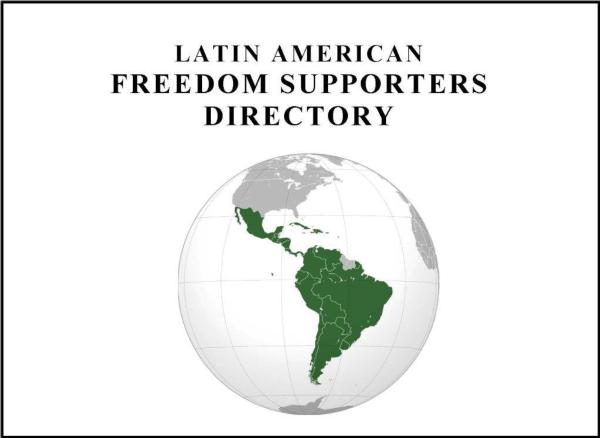
Morton Blackwell
November 21, 2013
New Pro Freedom Directory for Latin America
The first edition of the Leadership Institute new Latin America Freedom Supporters Directory is now available for free online. The new directory contains the contact information for hundreds of pro-freedom people and organizations in Latin America.The objective of the directory is to connect people and organizations who share a commitment to free markets, private property rights, individual freedoms, and democratic participation in the public policy process.Considerable experience in Latin America has shown that supporters of freedom often do not know that there are many others in their own countries who share these principles. Very few are acquainted with like-minded people in other Latin American countries.In contrast, activists for leftist causes in Latin America usually know each other well and often cooperate closely with leftists in their own countries and internationally.The Latin America Freedom Supporters Directory will change that for the benefit of free-market supporters and principles.To compile the information, The Leadership Institute requested and received suggestions from experienced people in Latin America and from many people in the United States who are widely acquainted in Latin America.The first edition of the directory contains the names, addresses, phone numbers, email addresses, and other available facts about worthwhile contacts in the public policy process.In the directory you will find:• government officials, elected and appointed;• political party and youth group leaders;• educators and lecturers on free-market issues;• organizations located in Latin America or running programs in the region; and• activists who want to make contacts with their counterparts in the U.S. and elsewhere.How can we best undo generations of propaganda and conditioning in Latin America? How can Latin Americans learn the economic principles which make possible wealth creation when they have absorbed the false notion that the main purpose of economics is the centralized and thus “fair” distribution of goods and services?The best solution is to educate and support a new infrastructure of pro-freedom and pro-democracy activists in Latin America. That is why The Leadership Institute created the directory, to get to know each other, to exchange information, and to enable potential allies to work together on activities and projects of mutual interest.Click here to download the Latin America Freedom Supporters Directory. >
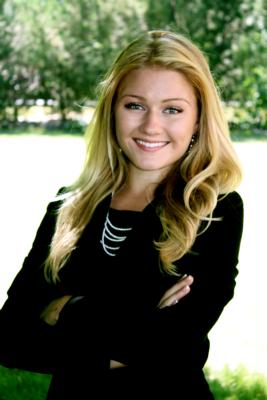
Kelly Macfarland
August 26, 2013
Ballerina Dances Her Way Into Colorado Politics
Alexa Van Anne isn't your ordinary 19-year-old. She's a competitive ballerina, a committed conservative activist, and dreaming of running for office herself – but first, she's got to finish college. Alexa got her start in politics working for the reelection of her congressman, Rep. Mike Coffman, in 2012. As area campaign director for Mike Coffman for Congress, Alexa went door-to-door canvassing and phone banking. As November neared, Alexa became more involved in working on projects with the field director for her district. “Every week or so, we would have large groups of college students come in to help make phone calls and canvass, so I helped to train them on our systems,” Alexa said. Alexa also worked to publicize the debate between Congressman Coffman and his opponent, Joe Miklosi – one of the most competitive House races in 2012. She recruited campaign supporters so they made up the majority of the audience – and media coverage. Alexa's experience with the Coffman team didn't end with November elections. After the election results, she felt inspired by the work her Congressman was doing and decided she wanted to apply for an internship with his fundraising firm, The Starboard Group. Through her internship at The Starboard Group, Alexa got involved with other local political opportunities, including Congressman Corey Gardner's campaign, Colorado Secretary Scott Gessler's campaign, and local non-profits. During the legislative session, Alexa interned for State Representative Jerry Sonnenberg; after the session, for Secretary Scott Gessler's campaign. Alexa is very much an advocate for her state, and has big dreams that include running for office. “I would like to run for elected office in my home state of Colorado,” Alexa said. Growing up, Alexa learned the value that small businesses bring to the community and families. Working for her father's store—Blade Runner Services—Alexa gained valuable insight that has made her appreciate the hard work that goes into building and maintaining a business and the people behind them. “Working at a small business founded by my father provided me the opportunity to know what it takes to run a company,” Alexa said. Alongside being a committed activist for liberty, Alexa has spent the last 14 years of her life practicing ballet. During her time performing, Alexa lettered twice and was in a dance company for six years. After hearing about the Leadership Institute's Youth Leadership School from a friend who took the political bootcamp, Alexa decided to attend. Her experience was one that she will never forget. “I had an incredible experience at LI's Youth Leadership School. I learned exactly what it takes to be a conservative leader, and I was left with the tools to be one,” Alexa said. “The speakers were remarkable, and I was humbled by the opportunity to learn from each of them. Being a part of this two-day training alongside like-minded individuals was a great experience, and I met many promising future leaders. Most impressive, however, was the sheer amount of applicable information.” After taking the Youth Leadership School at the Leadership Institute in July with 141 others, she said she was “better informed” for her political future. And this fall, she will be joining 10 other conservatives to intern for the Leadership Institute. “I would recommend the Youth Leadership School to anyone who wants to become involved in politics. Everyone could learn something because the focus is on highlighting the skills of a selfless leader, which is very uncommon,” she said. Sign up now for one of LI's Youth Leadership Schools (YLS). The weekend trainings are hosted all over the country, or you may contact Daryl Ann Dunigan (DDunigan@LeadershipInstitute.org or 703-247-2000) to host a YLS training near you. Please congratulate Alexa Van Anne on receiving the Leadership Institute's Conservative Leader-In-Training Award and please encourage her to continue advancing conservatism in Colorado. To nominate a Leadership Institute graduate or faculty member for the Conservative Leader Award or Conservative Leader-In-Training Award where they will have an article written about them, please contact LI's Director of External Affairs Lauren Day, at Lauren@LeadershipInstitute.org.
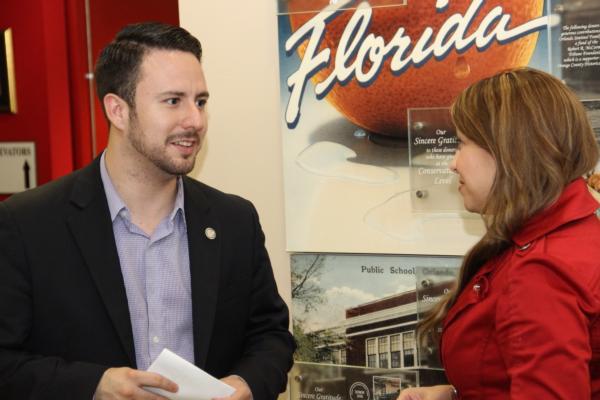
Paulo Sibaja
August 23, 2013
LI Engages Latinos in Florida
The Leadership Institute and partnering organizations went to Orlando, Florida to meet with more than 70 people from across the I-4 corridor to find the issues that unite conservatives and Hispanics.Notable guests included a representative from U.S. Senator Marco Rubio's staff, a candidate for Florida governor, several candidates for Congress, local elected officials, and community and business leaders.Attendees interacted with event speakers from partnering organizations -- The LIBRE Initiative, Faith & Freedom Coalition, Voto Honesto, and the Heritage Foundation. Members of the audience asked questions ranging from immigration policy to messaging to Hispanics, winning over youth, education reform, and more. The event was held at the Orange County Regional History Center. The courtroom, a vintage early 1900's courtroom, was the same courtroom where Ted Bundy was found guilty. In fact, the corner of the defendant's desk has his name inscribed. Bertica Cabrera Morris, the featured business women, engaged the crowd and called for action. Her family fled Cuba in search of freedom. She raised five children while working and bettering the lives of those around her. She has inspired many.Sue Tombino from Boca Raton said, “This event has been very informative, passionate, and clear. We need more of these forums.” >

Morton Blackwell
July 13, 2013
A scandal ... and a rare opportunity
With smart and effective graduates like you, it's no wonder that the left hates the Leadership Institute. You may have seen your Institute's name in the Wall Street Journal or on Fox News this summer. As a grad, you'll recall LI does not seek media attention as a general rule. But the largest and latest scandal that threatens to derail the Obama administration has LI at the center of it. How could I say no? I refer to the scandal of deliberate IRS targeting and interminable blocking of conservative groups' applications for tax-exempt status -- which has by no means run its course. Instead, it's given way to a second, unfolding scandal. Ordinarily, information about abuses in IRS auditing practices is a deep, dark secret. Targets choose to suffer in silence for fear that an IRS audit will scare away some of their donors or that publicly complaining would cause the IRS to persecute their organizations even more. Those calling the shots at the IRS believed there was no chance at all that they would ever be held accountable for specially targeting conservative groups. But a groundswell of conservative complaints and considerable new information has led Congressmen Darrell Issa and Jim Jordan to ask Treasury Department Inspector General J. Russell George to “conduct an investigation to determine whether groups that possess tax-exempt status were targeted for audits or examinations based on their political beliefs or ideology.” Your Institute is one such targeted group. The timing of the audit of LI coincided with the period for which the IRS stonewalled applications by new conservative groups for tax-exempt status. During this period, the IRS office in Cincinnati asked an applicant, the Hawaii Tea Party, about its relations with LI. The IRS Baltimore office was conducting the audit of LI -- a sign of coordination between the IRS offices, not just a couple of rogue agents in Cincinnati. This should be big news. IRS targeting of existing groups for audits is a second can of worms to be opened. It's one thing to try to kill nascent conservative groups; it's quite another and even more serious thing to persecute existing conservative groups which already have tax-exempt status. No one at the IRS could be sure whether or not a brand new group might be effective, but it's very easy for them to target existing groups which have already proven their effectiveness -- like your Institute. Surely congressional investigators will dig up more facts about these abusive practices. Soon there may be public-spirited whistleblowers inside the executive branch willing to expose abusive conduct, including information about who ordered those abuses and who knew about those abuses but took no steps to stop the illegal practices. Some guilty people may decide to confess and implicate others in order to reduce the criminal charges they know they are about to face. This is certain: if no one at the IRS is fired, fined, or jailed for the persecution of conservatives that has already become public knowledge, the guilty people there will conclude that they can continue their abuses with impunity. You and I must not allow that to happen. Please thank Congressmen Issa and Jordan for continuing their investigations into the IRS scandal. Please contact me or my staff if you or your conservative organization were asked about a relationship to the Leadership Institute. Let's keep building our case. Guilty people may actually be held accountable for abuses of power by the IRS. That's a rare and precious opportunity.
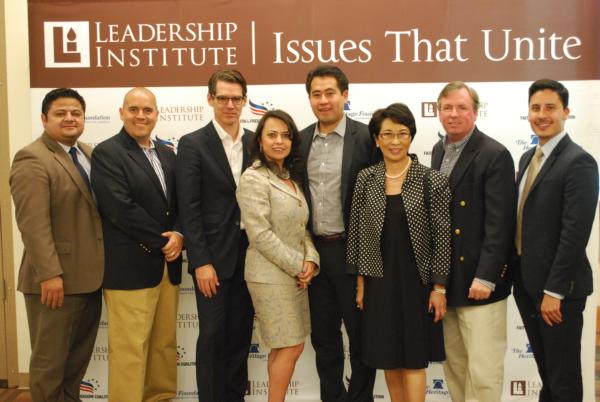
Paulo Sibaja
May 9, 2013
LI's Newest Initiative -- "Issues That Unite: Latinos & Conservatism"
Issues That Unite: Latinos & Conservatism in Las Vegas, Nevada was the first city out of eight the Leadership Institute and its partnering national organizations visited. The Leadership Institute partnered with New America, a new organization in Nevada seeking to engage minorities.The event was a success; representatives from Governor Sandoval, Senator Heller, and Congressman Heck's office attended the event as did more than 100 other individuals.The event was held at the Springs Preserve in Las Vegas, a venue known for hosting El Dia del Niño and El Dia de los Muertos (The day of the Child and The day of the Dead). Attendees were treated to appetizers and beverages as they networked prior to the events' start.The first half of the event focused on public policy and how it affects Latinos.Isreal Ortega from The Heritage Foundation discussed economic and school public policy. Leticia Gardea, a small business owner in Las Vegas, gave her testimony as a Latina entrepreneur. Tim Mooney, representing Faith & Freedom Coalition, discussed family policy.The second half of the event tied public policy to practical training.Dan Garza with The Libre Initiative talked about messaging to Latinos while Adryana Boyne from VOCES Action discussed the importance of Hispanic Media.The day concluded with an immigration panel discussion where questions regarding immigration from the audience were answered.Highlights: 1. More than 100 attendees2. Notable guests included: -Representative from Governor Sandoval's office - Representative from Senator Heller's office - Representative from Congressman Heck's office - Other candidates for public office - Leaders from New America, Libre Initiative, Heritage Foundation, VOCES Action, Tea Party Patriots and Leadership Institute3. Red Card Solution,The Heritage Foundation, the Leadership Institute, and VOCES Action all distributed helpful materials to every attendee>
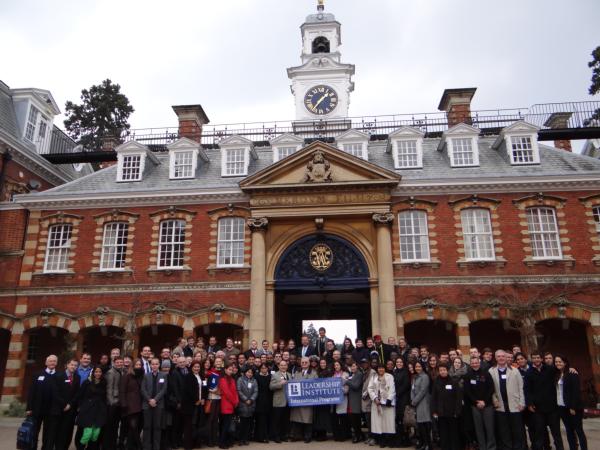
Miguel Moreno
April 11, 2013
108 Conservatives From 30 Countries Get Trained in England
Fundraising is not just about asking for money, but about developing relationships with people who share your vision and want to be your partners in bringing change to society. Your donors are not just a source of money -- like a bank machine -- but partners, so keep them informed about the progress you are making and let them know how their contributions are helping. These were a few of the main concepts in Morton Blackwell's opening speech at the sixth annual International School of Fundraising held at the beautiful Wellington College in Berkshire, England.Over four days, 108 people from 30 countries and four continents, met at Wellington College from March 26 to 30. Seventeen renowned experts in fundraising, from the US, Europe, and Latin America, delivered 35 lectures teaching vital skills necessary to succeed financially as a political leader or as an organizational entrepreneur. Social entrepreneurs learned how to:Build strong donor relationsDevelop fundraising strategiesPlan effective fundraising eventsUnderstand online fundraisingAdapt fundraising methods to their home countriesSpeakers included major players in the field such as Morton Blackwell, Bruce Eberle, Stephen Clouse, Rick Hendrix, Kevin Gentry, Justin Murff, Brian Davis, Katherine Eberle, Ron Nehring, and Alejandro Chafuen, and Silvio Dalla Valle from Italy, Mathias von Gersdorff from Germany, Tim Evans and Matthew Elliot from England, and Jose Antonio Ureta from France.While the day was packed with a lot of learning, after dinner, students congregated at the on-campus pub for networking and sharing stories. Students from Argentina, Brazil, Bolivia, Colombia, Chile, Ecuador, Venezuela, Guatemala, United States, Mexico, Canada, United Kingdom, Romania, France, Spain, Italy, Croatia, Slovakia, Germany, Kazakhstan, Moldova, Sweden, Denmark, Poland, Austria, Nigeria, Tanzania, Zimbabwe, South Korea and Mongolia met at the pub.As we spoke to one another they learned how similar the social problems are around the world and how we all face the same obstacles in solving those problems. Students found it motivating to learn that they were not alone. Networks for knowledge-sharing and support developed.On the night of Friday, March 29, the International School of Fundraising concluded with a gala dinner lit by candlelight. At the dinner, Morton Blackwell and Miguel Moreno of the Leadership Institute and Benjamin Harris-Quinney of the Bow group presented the Global Leadership Award, which recognizes exceptional work done by individuals around the world. This award is granted jointly by the Leadership Institute, the Bow Group, the World Congress of Families/ Howard Center for Family, Religion, and Society, and The Institut de Formation Politique. The Global Leadership Award embodies a non-partisan network of leaders who aim to bring ideas to power and to give power to ideas by stimulating dialogue and discussion about critical international conservative issues.During his speech, Morton Blackwell said, “We recognize and honor the unfaltering dedication of some remarkable individuals, who through their consistent faith, solid professionalism, and unwavering commitment to the conservative cause are making an international impact” and that “this joint award seeks to encourage the best forms of international engagement to meet the global challenges of the 21st century.“Recipients of the Global Leadership Award are: Nic Conner, Donna Edmunds, Samuel Kasumu, Karolina Vidovic Kristo, Pauline Fynn, Jack Chubb, Mark Eastham, Adryana Boyne, Marie-Noël Julienne, Eric Martin, Simon Cossiez, Adeyemi Ikuforiji, Sylva Ashimole, Juan Carlos Lazarte, Alexander Mooney, Lorenzo Montanari, Zeljko Zidaric, Amanda Sanchez, Luz Elena Delgado Flores, Ron Nehring, Oliver Cooper, Onyebuchi Monica Madiebo, Marco Respinti, Vanesa Anez, and Marcel Lazar.LI appreciates their contributions of time and talent to increase the number and effectiveness of conservative activists and leaders worldwide. It takes a special kind of person to be an activist. While most people might get angry and complain – these people decided to act. Not only did they see the problem, they found a solution. They acted.They are activists.Saturday, for those that left on later flights, was a day of sightseeing in London. From Big Ben to the London Eye, from Parliament to Westminster Cathedral and Westminster Abbey, thousands of pictures were taken with new friends. The overall goal of the training was not to feed delegates with a fish, but to teach them how to become extraordinary fishermen. The training that was provided is just the start. Betterment of the world comes from the work that activists do with the training. The world now has 108 newly empowered social entrepreneurs returning to their home countries, empowered, energized, and ready to make a difference! We wish each and every one of those activists the best of luck.>

Leadership Institute
March 26, 2013
Announcing Issues that Unite: Latinos and Conservatism
The Leadership Institute, in partnership with The Heritage Foundation and Faith & Freedom Coalition, launched today Issues that Unite: Latinos and Conservatism (ITU). Experts in education, and economic public policy as well as Hispanic media will teach at seven workshops to engage Latinos and activate conservatives.The series of workshops will be held in six states with large Hispanic communities. You can see them on LI's 2013 training calendar.“America's emerging face requires a shift in outreach efforts,” said Paulo Sibaja, Director of Coalitions at the Leadership Institute. “Conservatives failed to communicate our proven philosophy to Latinos effectively. That is why we have launched the first phase of a long term project to reach Hispanics. Through our efforts that merge policy and practical training, conservatives and Hispanics will lead the nation hand in hand.”“Opportunity is precisely what Hispanics are looking for when we consider what's desperately needed to return America to what so many of us came here looking for,” said Israel Ortega, Editor of Heritage Libertad at The Heritage Foundation. The Heritage Foundation is the nation's most broadly supported public policy research institute, with hundreds of thousands of individual, foundation and corporate donors. “Hispanics consider family and family cohesiveness a valuable pillar of their community. Our shared faiths are as diverse as the community and the desire for freedom is evident in how we live our lives,” said Gary Marx, Executive Director of the Faith & Freedom Coalition. The Faith & Freedom Coalition is a non-profit organization with an avowed commitment to educating, equipping, and mobilizing people of faith and like-minded individuals to be effective citizens.>

Lauren Hart
October 17, 2012
CEO of Saxo Bank in Denmark Tours the U.S.
Lars Christensen, CEO of Saxo Bank in Denmark, is touring the U.S. this week and meeting with many groups and media to share his experience of European-style socialism.Yesterday he spoke to D.C. conservatives at the Heritage Foundation."Our prosperity and security is to a much larger degree than we realize due to the U.S., and both are threatened by the U.S.' extreme acceleration towards chaos. A chaos that to a large extent is caused by Obama's economic measures that damage and indebt Americans -- and the rest of the world." Op-ed in Danish newspaper Berlingske, February 2009"His indictment of European-style socialism is stunning. His command of history and free-market principles make his presentation enthralling," Leadership Institute President Morton Blackwell said. "As America stands at a crossroads between capitalism and prosperity or European-style socialism and economic decline, his message could neither be more timely nor more important. That's why I hope you'll join me on this speaking tour to hear Lars Seier Christensen, CEO of Saxo Bank in Denmark, discuss his country's socialist policies and why we don't want them."For more information on Lars and his America tour this week, please click here. >

Patricia Simpson
September 27, 2012
Webinar replay: effective door-to-door
The key to winning an election is much more than simply turning out more voters than your opponent. You must learn the techniques that successful campaigns have been using for years, and then adapt them to fit your winning formula.A successful door-to-door effort could be the difference you need to win!

Patricia Simpson
August 23, 2012
Webinar replay: voter registration
Voter registration is as important as volunteers and fundraising for a campaign. You can't win if you don't have the votes. Learn how to find unregistered voters and why a successful voter registration drive can lead to victory.

Patricia Simpson
August 16, 2012
Webinar replay: Voter goals
Missed last night's webinar? No problem -- watch it whenever you have time today or this weekend. (Click "Read the full story" to get started!) You'll hear from Bryan Bernys on voter goals. Bryan is LI's Vice President for the Campus Leadership Program. Bryan came to the Institute with a wealth of campaign experience: New Hampshire Field Director for the McCain 2008 campaign, Field Director for the Tarrant for Senate campaign in Vermont, Campaign Manager for Robinson for Delegate in Virginia, consultant for the Ball for Delegate special election in Virginia, and field staff for the Bush/Cheney 2004 campaign in Michigan.>